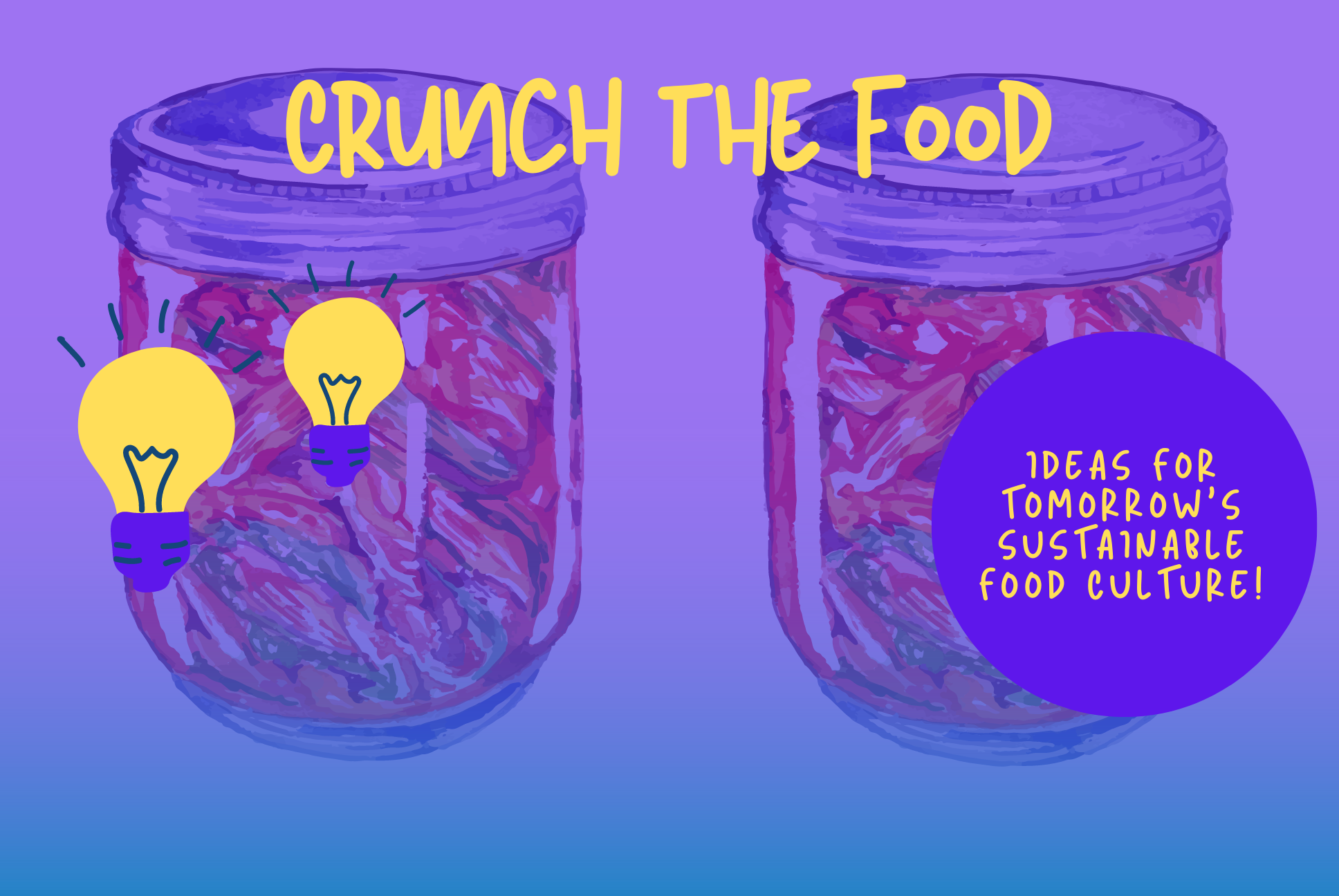
This event has passed.

Crunch The Food
11. May 2023 @ 8:00 - 12. May 2023 @ 17:00
Create ideas for tomorrow’s sustainable food culture!
Idéa workshop May 11-12
Green transformation needs not only new technologies, but also cultural change, critical reflection and action, dialogue and co-creation. Do you want to use your academic skills to develop projects that can make real difference to sustainable change?
Do you want to develop ideas together with other students who study something different from you?
Do you want to get better at generating new ideas and tools to turn them into reality?
Do you want to meet exciting speakers, companies and experts in the field of sustainable change?
Then join the Food Future idea sprint on May 11-12.